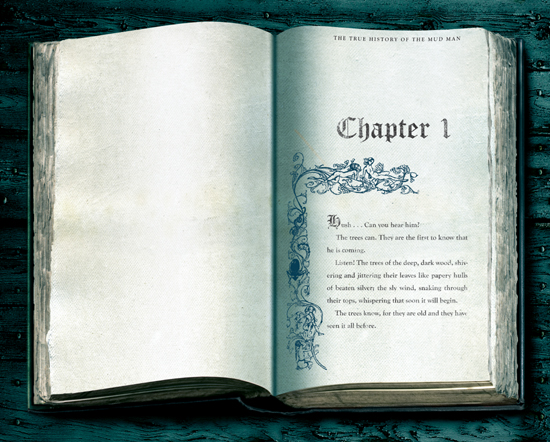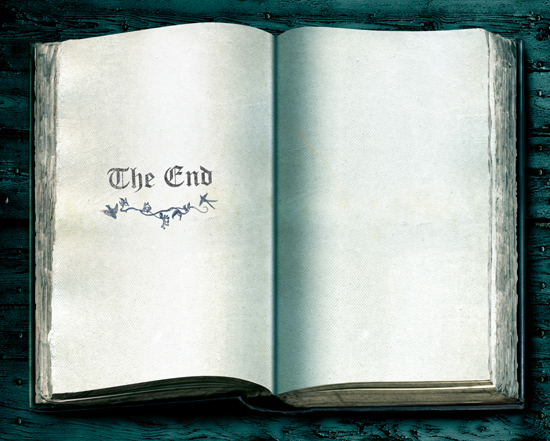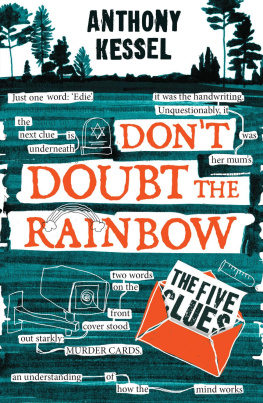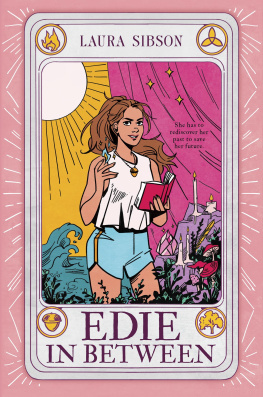

THE
DISTANT
HOURS
Also by Kate Morton
The House at Riverton
The Forgotten Garden

A Division of Simon & Schuster, Inc.
1230 Avenue of the Americas
New York, NY 10020
www.SimonandSchuster.com
This book is a work of fiction. Names, characters, places, and incidents either are products of the authors imagination or are used fictitiously. Any resemblance to actual events or locales or persons, living or dead, is entirely coincidental.
Copyright 2010 by Kate Morton
Originally published in Australia in 2010 by Allen & Unwin.
Published by arrangement with Allen & Unwin Pty Ltd.
All rights reserved, including the right to reproduce this book or portions thereof in any form whatsoever. For information address Atria Books Subsidiary Rights Department, 1230 Avenue of the Americas, New York, NY 10020.
First Atria Books hardcover edition November 2010
ATRIA BOOKS and colophon are trademarks of Simon & Schuster, Inc.
For information about special discounts for bulk purchases, please contact Simon & Schuster Special Sales at 1-866-506-1949 or business@simonandschuster.com.
The Simon & Schuster Speakers Bureau can bring authors to your live event. For more information or to book an event contact the Simon & Schuster Speakers Bureau at 1-866-248-3049 or visit our website at www.simonspeakers.com .
Manufactured in the United States of America
10 9 8 7 6 5 4 3 2 1
Library of Congress Cataloging-in-Publication Data
Morton, Kate, date.
The Distant hours : a novel / Kate Morton.1st Atria Books hardcover ed.
p. cm.
1. Mothers and daughtersFiction. 2. Family secretsFiction. 3. World War, 19391945Evacuation of civiliansFiction. 4. World War, 19391945EnglandKent. 5. Domestic fiction. I. Title.
PR9619.4.M74D57 2010
823.92dc22 2010033472
ISBN 978-1-4391-5278-2
ISBN 978-1-4391-9934-3 (ebook)
For Kim Wilkins, who encouraged me to start; and
Darin Patterson, who was with me to the last full stop
Hush Can you hear him?
The trees can. They are the first to know that he is coming.
Listen! The trees of the deep, dark wood, shivering and jittering their leaves like papery hulls of beaten silver; the sly wind, snaking through their tops, whispering that soon it will begin.
The trees know, for they are old and they have seen it all before.
It is moonless.
It is moonless when the Mud Man comes. The night has slipped on a pair of fine, leather gloves, shaken a black sheet across the land: a ruse, a disguise, a sleeping spell, so that all beneath it slumbers sweet.
Darkness, but not only, for there are nuances and degrees and textures to all things. Look: the rough woolliness of the huddled woods; the quilted stretch of fields; the smooth molasses moat. And yet Unless you are very unlucky, you wont have noticed that something moved where it should not. You are fortunate indeed. For there are none who see the Mud Man rise and live to tell the tale.
Theresee? The sleek black moat, the mud-soaked moat, lies flat no longer. A bubble has appeared, there in the widest stretch, a heaving bubble, a quiver of tiny ripples, a suggestion
But you have looked away! And you were wise to do so. Such sights are not for the likes of you. We will turn our attention instead to the castle, for that way also something stirs.
High up in the tower.
Watch and you will see.
A young girl tosses back her covers.
She has been put to bed hours before; in a nearby chamber her nurse snores softly, dreaming of soap and lilies and tall glasses of warm fresh milk. But something has woken the girl; she sits up furtively, sidles across the clean white sheet, and places her feet, one beside the other, two pale, narrow blocks, on the wooden floor.
There is no moon to look at or to see by, and yet she is drawn to the window. The stippled glass is cold; she can feel the night-frosted air shimmering as she climbs atop the bookcase, sits above the row of discarded childhood favorites, victims of her rush to grow up and away. She tucks her nightdress round the tops of her pale legs and rests her cheek in the cup where one white knee meets the other.
The world is out there, people moving about in it like clockwork dolls.
Someday soon she plans to see it for herself; for this castle might have locks on all the doors and bars against the windows, but that is to keep the other thing out and not to keep her in.
The other thing.
She has heard stories about him. He is a story. A tale from long ago, the bars and locks vestiges of a time when people believed such things. Rumors about monsters in moats who lay in wait to prey upon fair maidens. A man to whom an ancient wrong was done, who seeks revenge against his loss, time and time again.
But the young girlwho would frown to hear herself described that wayis no longer bothered by childhood monsters and fairy tales. She is restless; she is modern and grown-up and hungers for escape. This window, this castle, has ceased to be enough, and yet for the time being it is all she has and thus she gazes glumly through the glass.
Out there, beyond, in the folded crease between the hills, the village is falling to drowsy sleep. A dull and distant train, the last of the night, signals its arrival: a lonely call that goes unanswered, and the porter in a stiff cloth hat stumbles out to raise the signal. In the nearby woods, a poacher eyes his shot and dreams of getting home to bed, while on the outskirts of the village, in a cottage with peeling paint, a newborn baby cries.
Perfectly ordinary events in a world where all makes sense. Where things are seen when they are there, missed when they are not. A world quite unlike the one in which the girl has woken to find herself.
For down below, nearer than the girl has thought to look, something is happening.
The moat has begun to breathe. Deep, deep, mired in the mud, the buried mans heart kicks wetly. A low noise, like the moaning wind but not, rises from the depths and hovers tensely above the surface. The girl hears it, that is, she feels it, for the castle foundations are married to the mud, and the moan seeps through the stones, up the walls, one story after another, imperceptibly through the bookcase on which she sits. A once-beloved tale tumbles to the floor and the girl in the tower gasps.
The Mud Man opens an eye. Sharp, sudden, tracks it back and forth. Is he thinking, even now, of his lost family? The pretty little wife and the pair of plump, milky babes he left behind? Or have his thoughts cast further back to the days of boyhood, when he ran with his brother across fields of long pale stems? Or are his thoughts, perhaps, of the other woman, the one who loved him before his death? Whose flattery and attentions and refusal to be refused cost the Mud Man everything
Next page












